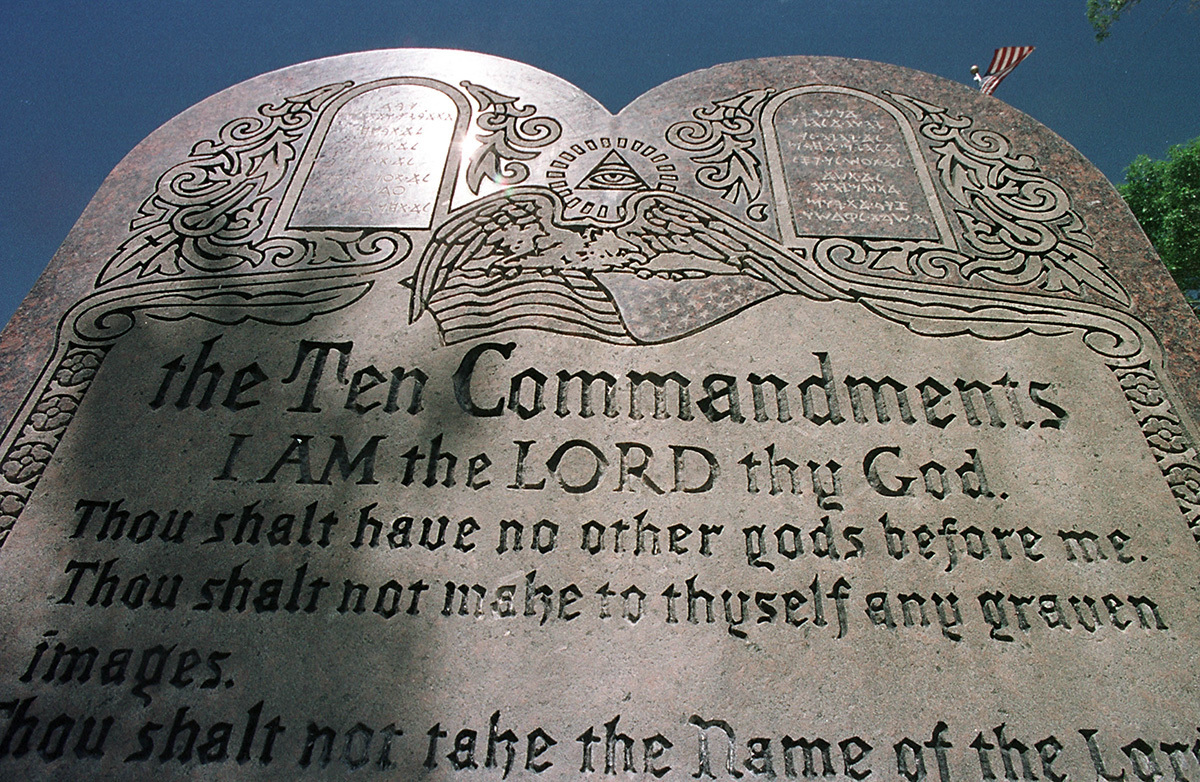In a move that continues to stir debate, Arkansas has mandated the display of the Ten Commandments in all public school classrooms. This requirement comes as part of a broader legislative effort to highlight the role of religious and moral beliefs in American history.
Governor Sarah Huckabee Sanders signed Senate Bill 433 into law, which passed through the state legislature with strong Republican support. The bill mandates that schools and public buildings funded by taxpayer money must display the Ten Commandments alongside the U.S. national motto, “In God We Trust,” as well as the flags of the United States and Arkansas.
Further, Sanders recently signed House Bill 1705, reinforcing the integration of religious discussions in education. This law requires the inclusion of the Founding Fathers’ religious beliefs in the social studies curriculum for grades six through twelve. The curriculum will delve into how these beliefs influenced foundational U.S. documents, focusing on the Declaration of Independence’s assertion that rights are “endowed by their Creator.”
Mat Staver, founder and Chairman of Liberty Counsel, praised the legislative actions, noting, “The Founders knew our inalienable rights come from God, not government, and that the role of government is to protect those rights.” He emphasized the historical importance of the Ten Commandments in shaping American law and governance.
Meanwhile, Phil McGraw, a former talk show host, voiced his support for the Ten Commandments in schools during an episode of his podcast, “The Real Story,” highlighting the need to counteract what he described as “false gods” like social media and celebrity culture.
Arkansas follows in the footsteps of Louisiana, which enacted a similar law last year. However, the implementation in Louisiana faced legal challenges, resulting in a federal judge temporarily blocking the law after a lawsuit by the ACLU and other organizations. A federal appellate court later limited the injunction to areas where the law was contested by parents.
With this latest legislation, Arkansas joins the ongoing national conversation about the role of religious symbols in public spaces and their influence on education.
This article was originally written by www.christianpost.com






